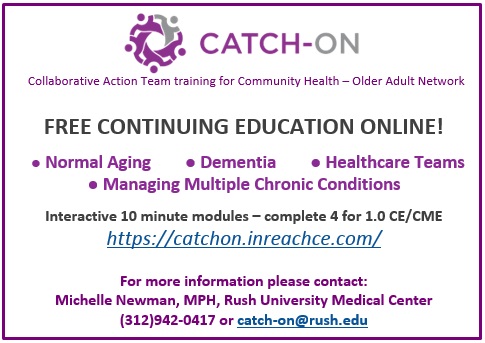2017 OASAC Report
Please click on the below in order to view the 2017 OASAC (Older Adult Services Act Committee) Report.
Older Adult Services Act - 2017 Report To The General Assembly: Illinois Department on Aging
Please click on the below in order to view the 2017 OASAC (Older Adult Services Act Committee) Report.
Older Adult Services Act - 2017 Report To The General Assembly: Illinois Department on Aging
Nutrition Documents
On December 28th, USDA/CNPP is launching the MyPlate, MyWins New Year’s Campaign to help Americans turn their New Year’s resolutions into real solutions for healthy eating. This new campaign will feature 5, week-long SuperTracker Challenges, a series of short MyPlate, MyWins animated videos and new webpages. Visit today’s blog for a preview of what’s to come!
Help create some buzz around the upcoming campaign by using these sample social media messages:
COMING DEC 28! New @MyPlate tools & resources to help you find real solutions for a healthier 2017! http://go.usa.gov/x8MDx #MyPlateMyWins
Get ready! @MyPlate has something new coming your way to help you meet your #NewYears healthy eating goals! http://go.usa.gov/x8MDx
When you are ready to think about YOUR #NewYears resolutions, let #MyPlateMyWins be the place you start. http://go.usa.gov/x8MDx
Client Tracker FY 12- FY 16 Comparison
FY 2016 POMP Congregate Results PowerPoint

ECIAAA
1003 Maple Hill Road
Bloomington, IL 61705-9327
Contact Us
Email: aginginfo@eciaaa.org
Phone: 309-829-2065
Fax: 309-829-6021
Mon-Fri: 8:00 am to 4:00 pm
Sat-Sun: CLOSED